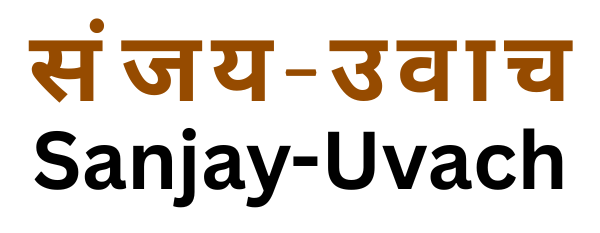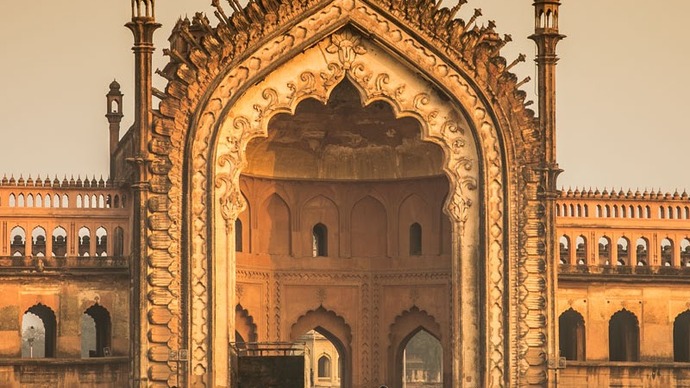She taught us arts in the school. Kumudini Pal, aged 25 or thereabout. A quintessential Bong-beauty. Well-endowed at that. Soft-spoken but firm as she managed a class of mostly boys. The year was 1972 and we were all of 11-12 years in age. Unlike in today’s digital world, we pieced together our understanding of the world and its ways through exchange of whispers in the corridors of the school or in the parks of our colonies. Quite a few of us had already made plans to marry her. Those days marriage was the next logical step as one developed feeling for the opposite gender. Like all other classmates, I too made my plans for a life with her. I too was all of 11 years of age. There emerged a tall, handsome man with an enviable possession, a Royal Enfield motorcycle. He would often wait for her at the gate of our school and they would ride away together. Sometime in the middle of our final year in the school we all were bomb-shelled by the news that the two got married. That was my first brush with rejection. He was (my memory fails to recollect his given name) a Khan. I started disliking Muslims.
Her name was Nasreen. My recollection of her is as a petite, fair-complexioned and generally demure classmate. It’s only recently (when I started writing this piece) I came to know that her sect has Palestinian / Israeli lineage. She would interact with us only to the extent an almost-teenage girl in the seventies could. Having faced a rejection (remember my Arts teacher), I was on the rebound. Over time, my sporadic exchanges with her blossomed into a one-sided love. To my parents’ surprise, I actually started looking forward to going to school. It came like a bolt from the blue when I got to know that she had applied for a TC (Transfer Certificate). Her father was getting transferred out of Lucknow. Why on earth was it Nasreen’s father who got transferred. It could have been Bikram Sen’s. Or, Sushil Jaiswal’s. My dislike for Muslims was deepened.
Then, there was another classmate Sifat Ullah. His father owned a big shop in Aminabad, selling buttons, laces, brocades and other stuff of interest to ladies. I vividly remember, his father once giving us a discount when I accompanied my sister to their shop, when he came to know that I was Sifat’s classmate. I am sure my sister noticed the gleam in my eyes on getting her the discount. Sifat had a sports bicycle. Not exactly a sports variety. It was a stylish, red-coloured (black was the norm those days) bicycle. It had hand-brakes in the form of wires, jetting out of the handle royally. Though Sifat was a decent, cool student, I always had this feeling that his bicycle was mocking at me every time I arrived at the school in our tin-topped (actually so) pedal-rickshaw. God, these Muslims!
How can I not remember the Masood brothers, Imran and Mannan. Imran was the elder one and my classmate. Mannan was a year junior. They continue to be a major source for my dislike for Muslims. The brothers were excellent cricketers. Their dazzling white cricket-wear (trousers, shirts, sweaters and caps) made me green all over. A fully equipped kit-bag with pads, gloves, inners, abdomen-guard (we used to call it pota-guard) and the BDM bats was the stuff that I could only dream of. We played, off and on, on holidays, as a motley group who loosely structured itself as a club. Would you believe, we had proudly named our club “Immortal Club”!! Every match in which we could rope in Imran and Mannan was a sure-winner. No one could ever bowl Imran out. No one could ever negotiate Mannan’s pace. I am still not sure as to where did I fit. But I could always manage a place in the playing eleven as it was me who was friends with the duo and it was my responsibility to ensure that they played for our side. Imagine the bruised ego of a person whose survival in the cricket team depended on Imran & Mannan. You still expect me to have any empathy for Muslims.
Rahman-tauji, was a bohemian. He was my father’s friend from another town. He partnered my father in many mis-adventures; wrestling, a failed grocery shop, tantric-practice and my father’s office politics. As far as I can recollect, he had a films-exhibition business. He also co-owned the then biggest hotel in Lucknow and, later, opened another hotel in Nainital. A rich man, I conclude. Still, he would stay with us in our 670 square feet house every time he was in Lucknow. He would participate in recitation of Hanuman-chaalisa every evening (we were not served dinner without which), eat whatever we ate routinely and slept on a wooden Takhat (he was big & fat) in our baithak. Often, he would take us out for dinner at Arora’s dhaba in Lalbagh for mutton rogan-josh & tandoori roti as we were not allowed non-vegetarian food at home. If he was around during winters, early mornings he would call the Makhan-malai seller and allow us eat to our hearts’ full. To sum up, we all eagerly looked forward to his visits to Lucknow. One day it all stopped as he had taken ill. As a child I could not connect his illness to his absence (read the fun-filled time that we had with him). I just hated him for not visiting us. He later died. I didn’t know he was a Muslim. Now I do. So, in a re-structured expression of feelings I say, I hated a Muslim Rahman-tauji for falling ill and for dying on us.
Ebrahim Kisseka worked with a broking firm in Kenya. A middle-aged, stiff-upper-lipped and whiter-than-the-whites African who traced his ancestry to the Cape Malay community (as Muslims from the Western Cape of South Africa were called). The meals with him were always four-course and he knew his cutlery from outside-to-inside. He would confidently savour his prawn-cocktails, pate’ & crackers, medium-rare steak, chocolate souffle’ and espresso. The stuff I knew a zilch about. Eccentrically, he would always want the colour of his coffee to match the brown colour of the leather-case of his spectacles, to utter discomfort of the tea-ladies in my office in Nairobi. His otherwise polite demeanour and not-in-your-face wittiness made him friends with everyone without much efforts. How could a Muslim be so suave and elegant. Despite the Jihadi bomb attacks in Nairobi in 1998, clients kept patronizing him. The attacks happened in the American Embassy which was barely three kilometres from my office. Though, at the time of the bomb attacks Ebrahim was in a meeting with me in my office, I always wondered as to why his whereabouts at the time of the attacks were not enquired into. Wasn’t he a Muslim.
Aida Ashenafi was an Ethiopian. A beautiful woman, both from outside and within. I got to know her in 1999 whilst I was negotiating an aircraft insurance deal in Nairobi with her Somalian boss who, I came to know later, was a contraband dealer transporting Miraa (a banned psychosis-inducing plant). Aida’s story was not that of a stereotypical African struggler. She came from a regular, large family with means. Schooled initially in Adis Ababa, she moved to London for some vague professional course. Thereafter, she globe-trotted, like a free bird. For work. For pleasure. Totally unhinged. Kind of a later day Elizabeth Gilbert (Julia Roberts) of Eat Pray Love, a 2010 movie. What made her stand out was her irreverential (not disrespectful) attitude towards the challenges of life. Her unadulterated, child-like giggles (even whilst discussing profoundest of the issues) won her situations, almost always. No wonder her surname Ashenafi meant a conqueror in Amharic. She cajoled me to try the game-meat at Carnivore (a world-famous shack-of-a-restaurant in Nairobi) and dared me, a Muhindi (euphemism for an Indian), to Choma (loosely, tandoori meat) & Ugali. Unpredictable, she could turn up for formal meetings donning a Habesha Kemis (an elegant, traditional Ethiopian attire) or give a 180-degrees juvenile turn to a serious business conversation. One conversation that stayed with me was when she seriously wanted to research if the God was black or white or brown in appearance. As I started looking forward to meeting her during the weekends, she disappeared. Simply vanished. Do I still owe people an explanation for my grouse against Muslims.
There is one man I cannot be acerbic about. But hate him quietly, I do. I got to know Nadeem Noor after I stepped out of the mainstream insurance and had just entered the consulting space. It was 2010. A soft-spoken and level-headed person who conducted himself so near-perfectly that I started envying him immediately after our first meeting. He constantly insulted me with his brevity and absence of verbosity. Never ever to concede ground otherwise, I grudgingly started admiring his ability to be in a hyper-active work environment and still be at peace with himself. He worked for the United Nations and yet he was sans all its trappings. Knowing the ubiquitous unrest in the Muslim world and strong emotions that the word Muslim evoked, how could he be so unaffected by the negativity in the eco-system. How can one be a Muslim and still be a part of the mainstream world. I started questioning these sub-Muslims for this contradiction.
Distinct from the world-view, I have, you know by now, my own reasons for my dislike for Muslims.

